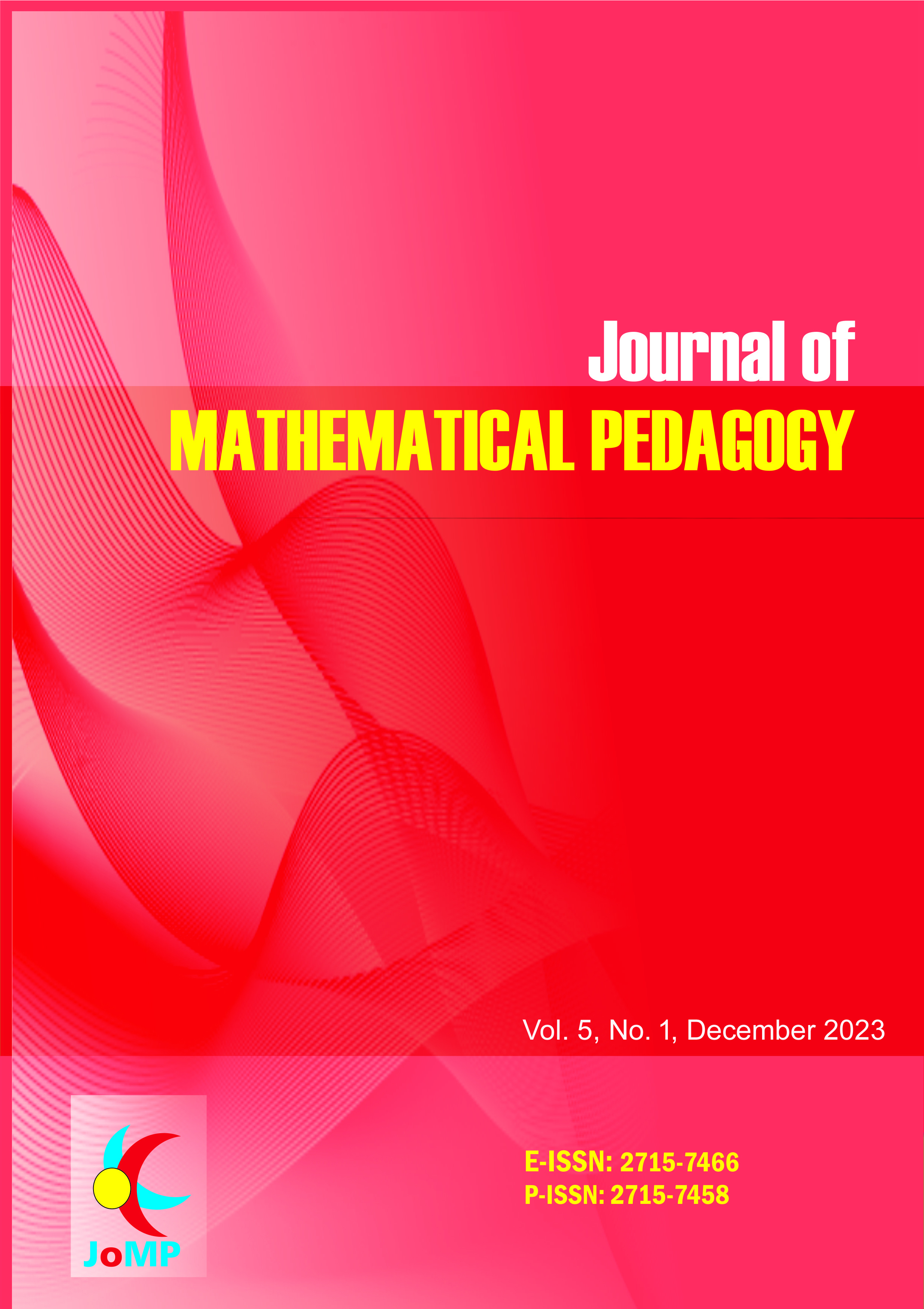Exploring Collaborative Problem Solving in STEM Contexts for Middle School Students
DOI:
https://doi.org/10.26740/jomp.v5n1.p15-31Keywords:
Collaboration, , problem solving, STEAMAbstract
In the 21st century, advances in science and technology require students to adapt. Classroom dynamics are still often dominated by passive learning methods, such as lectures, which result in a lack of student participation. PISA evaluation shows the low problems-solving abilities of Indonesian students. Therefore, the STEM approach emerged as a solution with a focus on essential 21st century skills, such as collaborative problem solving. The aim of the research is to investigate and analyze the collaborative problem solving process of junior high school students in solving STEM problems. The research method used is a case study with a qualitative approach. The research population included all students of SMP PGRI 13 Surabaya. Data collection techniques include observation, interviews, and questionnaires. Research instruments include questionnaires, observation sheets, and structured interviews. The research results show that collaborative learning in STEM context problem solving can help students develop problem solving skills. Students demonstrate good collaborative skills and their response to this learning is very positive. Evaluation of student learning outcomes also shows an increase, indicating the success of STEM-based learning methods in increasing student motivation. This research contributes to the understanding of the importance of learning approaches that integrate STEM with collaborative problem solving.
References
Baker, M. J. (2015). Collaboration in collaborative learning. Interaction studies, 16(3), 451-473.
Fathoni, M. A., & Siswono, T. Y. E. (2023). Proses Berpikir Kreatif Siswa SMA Dalam Menyelesaikan Masalah Kontekstual Materi Fungsi Kuadrat. MATHEdunesa, 12(3), 780-796.
Hannania, E., Siswono, T. Y. E., & Rahaju, E. B. (2022). Keterampilan pemecahan masalah kolaboratif siswa SMP yang berbeda adversity quotient pada materi segiempat. JPMI (Jurnal Pembelajaran Matematika Inovatif), 5(2), 471-484.
Hasanah, A., Heryati, Y., & Zaqiah, Q. Y. (2022). Model Pembelajaran STEAM untuk Meningkatkan Keterampila Abad 21. https://etheses.uinsgd.ac.id/id/eprint/57244
Khoiriyah, A. (2016). Pembelajaran Kolaboratif Pada Matematika Untuk Membentuk Karakter Generasi. JMPM: Jurnal Matematika Dan Pendidikan Matematika, 1(1), 13. https://doi.org/10.26594/jmpm.v1i1.502
Khoirunnisa, S. I., & Sudibyo, E. (2023). Profil Keterampilan Kolaborasi Siswa SMP dalam Implementasi Model Pembelajaran Kooperatif Tipe STAD. ScienceEdu, 6(1), 89. https://doi.org/10.19184/se.v6i1.40152
Lertcharoenrit, T. (2020). Enhancing Collaborative Problem-Solving Competencies by Using STEM-Based Learning Through the Dietary Plan Lessons. Journal of Education and Learning, 9(4), 102. https://doi.org/10.5539/jel.v9n4p102
Nurfajariyah, A. F., & Kusumawati, E. R. (2023). Implementasi Dan Tantangan Pembelajaran Tematik Terintegrasi Steam (Science, Technology, Engineering, Arts, Mathematics). Jurnal Lentera Pendidikan Pusat Penelitian Lppm Um Metro, 8(1), 49. https://doi.org/10.24127/jlpp.v8i1.2646
Nuryani Y. Rustaman. (2016). Pembelajaran Sains Masa Depan Berbasis STEM Education. In Prosiding Seminar Nasional Biologi Edukasi (Issue April). http://semnasbioedu.stkip-pgri-sumbar.ac.id/wp-content/uploads/2017/02/prosiding-semnas-bioedu-1-finale1.pdf
OECD. (2017). Collaborative Problem-Solving. In Encyclopedia of Social Network Analysis and Mining: Vol. V. https://doi.org/10.1007/978-1-4939-7131-2_100128
OECD (Organization for Economic Co-operation and Development). (2023). PISA 2022 Results (Volume I): The State of Learning and Equity in Education: Vol. I (Issue 2). OECD. https://doi.org/https://doi.org/10.1787/53f23881-en
Qomaria, N., & Wulandari, A. Y. R. (2022). Pengembangan Keterampilan Kolaboratif Siswa Melalui Pembelajaran Dengan Pendekatan Ethno-Steam Project Konteks Pesapean. AKSIOMA: Jurnal Program Studi Pendidikan Matematika, 11(2), 1306. https://doi.org/10.24127/ajpm.v11i2.4586
Salim, N. D. (2017). Implementasi model pembelajaran collaborative problem solving Untuk meningkatkan kemampuan representasi matematis siswa sekolah dasar. Jurnal Cakrawala Pendas, 3(1).
Wijaya, E. Y., Sudjimat, D. A., & Nyoto, A. (2016, September). Transformasi pendidikan abad 21 sebagai tuntutan pengembangan sumber daya manusia di era global. In Prosiding Seminar Nasional Pendidikan Matematika (Vol. 1, No. 26, pp. 263-278).
Wulandari, R., Shofiyah, N., & Kurniawan, M. I. (2022). Kemampuan Pemecahan Masalah Kolaboratif Calon Guru Ipa Pada Perkuliahan Blended Learning Berbasis Multikultural. Quantum: Jurnal Inovasi Pendidikan Sains, 13(2), 258. https://doi.org/10.20527/quantum.v13i2.14168
Zitari, A. (2019). Penerapan Model Pembelajaran Collaborative Learning pada Materi Bangun Ruang Sisi Datar untuk Meningkatkan Kreativitas Siswa. MATHEdunesa, 8(2), 128-133.
 Abstract views: 549
,
Abstract views: 549
, PDF Downloads: 421
PDF Downloads: 421





